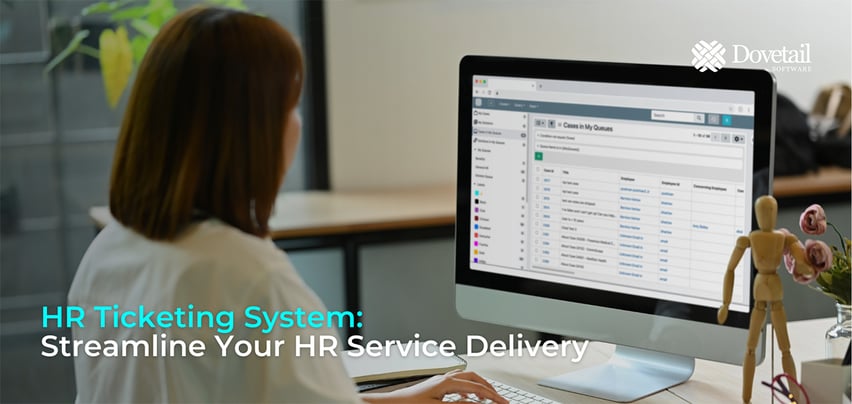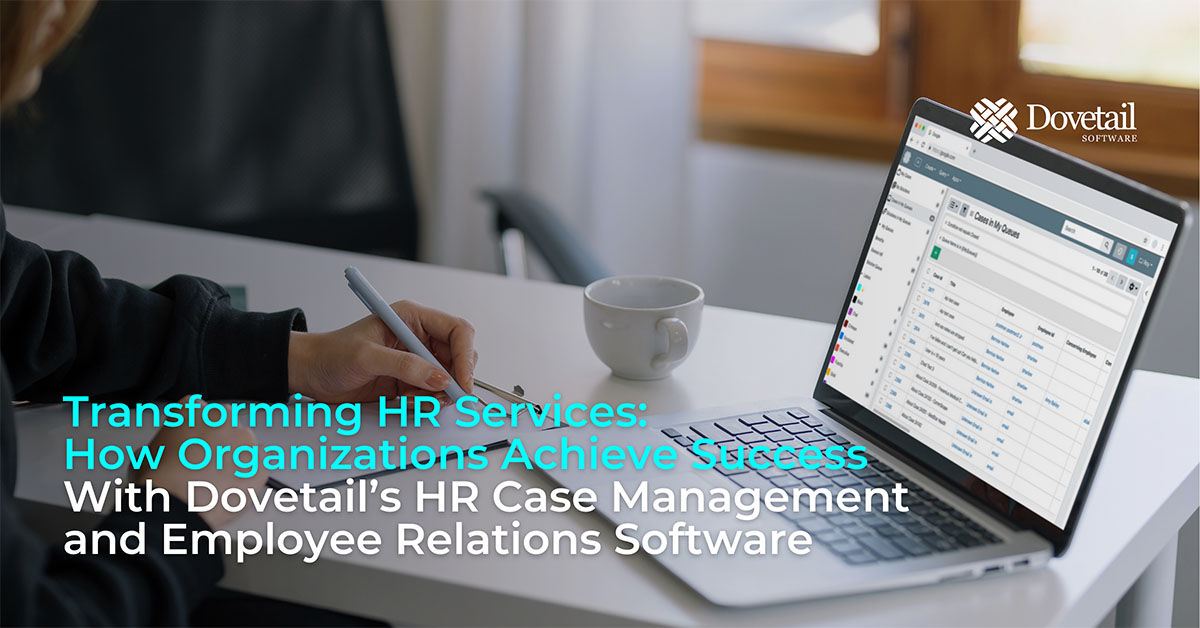 In the fast-paced world of HR, managing and resolving employee requests and issues promptly is crucial for maintaining a productive and satisfied workforce. However, the traditional methods of managing HR tickets through email or spreadsheets can be time-consuming, prone to errors, and lack transparency. That's where an HR ticketing system comes into play. In this blog post, we'll explore the benefits of implementing an HR ticketing system (also referred to as an HR Case Management system), its key features, and how it can revolutionize your HR Service Delivery for better efficiency and employee satisfaction.
In the fast-paced world of HR, managing and resolving employee requests and issues promptly is crucial for maintaining a productive and satisfied workforce. However, the traditional methods of managing HR tickets through email or spreadsheets can be time-consuming, prone to errors, and lack transparency. That's where an HR ticketing system comes into play. In this blog post, we'll explore the benefits of implementing an HR ticketing system (also referred to as an HR Case Management system), its key features, and how it can revolutionize your HR Service Delivery for better efficiency and employee satisfaction.
An HR ticketing system is a centralized platform that enables HR teams to manage, track, and resolve employee queries, requests, and issues in a structured and streamlined manner. It serves as a single point of contact for employees to submit their concerns and for HR personnel to efficiently address them.
The Challenges of Traditional HR Ticketing Methods
Using email or spreadsheets to manage HR tickets can lead to numerous challenges, such as the lack of a centralized repository, difficulty in tracking ticket status, delays in response time, and the risk of information getting lost or overlooked. These inefficiencies can hamper HR productivity and hinder employee satisfaction.
The Benefits of an HR Ticketing System
There are a number of benefits to adopting an HR Ticketing system, including:
1. Enhanced Organization and Centralization
An HR ticketing system offers a centralized platform where all employee requests are systematically organized and stored. This allows HR personnel to easily access and track ticket information, ensuring nothing falls through the cracks and all inquiries are promptly addressed.
2. Improved Workflow and Efficiency
With an HR ticketing system, HR teams can establish predefined workflows and automate processes, ensuring that tickets are assigned to the appropriate personnel for resolution. This streamlines the entire ticketing process, eliminates manual handovers, and reduces response times.
3. Enhanced Transparency and Accountability
Transparency is crucial in HR operations, and an HR ticketing system provides a transparent record of all ticket interactions. It enables HR personnel to monitor ticket progress, maintain accountability, and provide timely updates to employees. This fosters trust and demonstrates the HR team's commitment to addressing employee concerns.
4. Data-Driven Insights
An HR ticketing system generates valuable data and analytics that can be leveraged to identify recurring issues, measure response times, and identify areas for improvement. These insights empower HR teams to make data-driven decisions, optimize processes, and proactively address employee concerns.
Key Features of an HR Ticketing System
Several key features include:
Ticket Submission and Tracking
A robust HR ticketing system allows employees to submit tickets through an intuitive user interface (known as an Employee or HR Portal), ensuring that no request goes unnoticed. Employees can track the status of their tickets, providing them with visibility and reassurance.
Automation and Escalation
Automation features enable HR teams to define workflows, assign tickets automatically, and escalate critical issues to the appropriate personnel. This reduces manual effort, minimizes errors, and ensures that urgent matters receive prompt attention.
Knowledge Base and Self-Service Portal
An HR ticketing system often includes a knowledge base and self-service Employee Portal where employees can access FAQs, HR policies, and other relevant resources. This empowers employees to find answers to common queries independently, reducing the volume of tickets and freeing up HR resources for more complex issues.
Reporting and Analytics
Comprehensive reporting and analytics capabilities in an HR ticketing system enable HR teams to gain insights into ticket trends, response times, and overall performance. These metrics help identify bottlenecks, measure team efficiency, and optimize processes for continuous improvement.
Implementing an HR Ticketing System
Identify Organizational Needs and Goals
Before implementing an HR ticketing system, it's essential to identify your organization's specific needs and goals. Assess the volume and types of HR requests, evaluate current pain points, and define the desired outcomes to ensure that the chosen system aligns with your requirements.
Research and Select the Right Solution
Conduct thorough research to identify HR ticketing system providers that offer features aligned with your organizational needs. Consider factors such as ease of use, scalability, customization options, integration capabilities, and customer support. Evaluate user reviews and request demos to make an informed decision.
Plan for Implementation and Training
Once you've chosen an HR ticketing system, develop an implementation plan that includes a timeline, resource allocation, and data migration strategy. Train HR personnel on using the new system effectively and communicate the change to employees, highlighting the benefits and providing training or documentation for their usage.
Monitor, Evaluate, and Optimize
After implementing the HR ticketing system, regularly monitor its performance and gather feedback from HR teams and employees. Use the system's reporting and analytics features to measure success against predefined goals and identify areas for improvement. Continuously optimize workflows and processes based on the insights gained.
Conclusion
Implementing an HR ticketing system revolutionizes the way HR teams manage employee requests, leading to improved efficiency, transparency, and employee satisfaction. By centralizing and automating ticketing processes, HR professionals can focus on strategic initiatives, while employees benefit from faster response times and increased visibility into the status of their inquiries. With the right HR ticketing system in place, your organization can streamline its HR Service Delivery, enhance productivity, and create a positive employee experience.
By embracing technology and investing in an HR ticketing system, your HR department can become a more agile and proactive partner in driving organizational success.






























